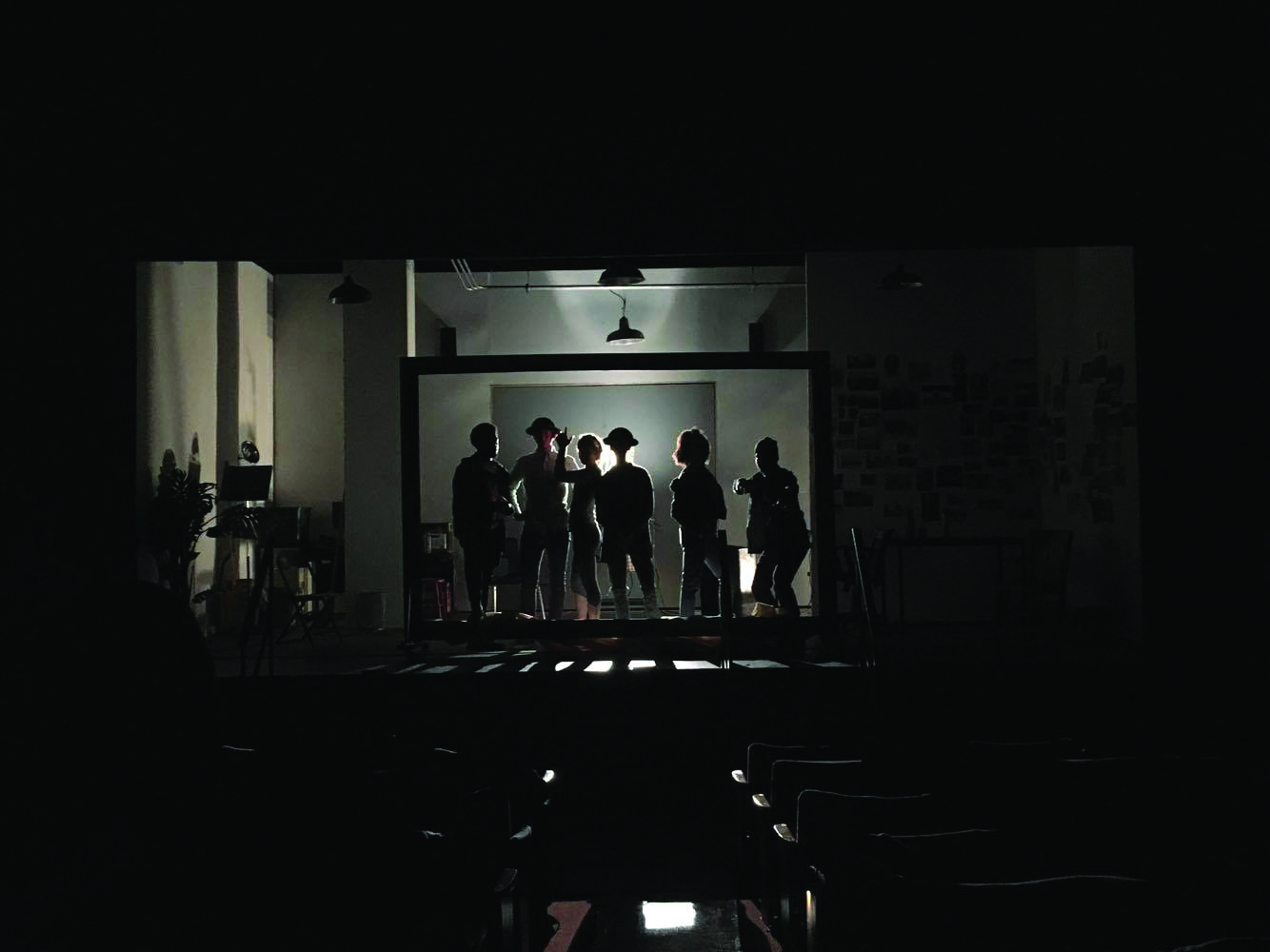
Courtesy of the Yale Dramat
In its Spring Mainstage production, the Yale Dramatic Association will explore conversations about erasure when telling the history of genocide.
Set in a small rehearsal room, the production features a diverse troupe of actors who attempt to devise a performance about the world’s first modern genocide: that of the Herero people in Namibia, Africa. Written by Windham Campbell Prize winner Jackie Sibblies Drury ’03, the play, whose full title is “We Are Proud to Present a Presentation About the Herero of Namibia, Formerly Known as Southwest Africa, From the German Südwestafrika, Between the Years 1884–1915,” premieres Wednesday in the University Theatre. The play wrestles with the question of which histories and stories get told and how they are presented.
“I think that no matter who you are, you shut yourself off to sections of history and human capability to inflict suffering,” actor Branson Rideaux ’20 said. “This is a show everyone needs to see.”
The characters in the play are six American actors attempting to put forth a performance — the “presentation” — that tells the story of the genocide of the Herero people at the hands of the German Empire during the turn of the century, student producer Adam Lessing ’19 said. According to director Shariffa Ali, the characters must base their production on only one source, which is biased: a cache of letters from German soldiers stationed in Namibia that make no mention of the genocide’s existence.
The actors find themselves charged with the responsibility of telling a story they feel is important to hear, with the historical limitations of the sources and many questions about what it means to “responsibly present” it, said Lessing. He added that the scenes alternate between the rehearsals and the “presentation,” and those lines ultimately blur. Characters within the play also lack specific names and are instead referred to by titles such as “Actor 1, A White Man” or “Actor 2, A Black Man.” Rideaux said that such titles based on race give the characters chances to grow while also limiting them at the same time.
“It is very reflective of how we view people socially,” Rideaux said. “We are all, in some way, actors telling a certain type of history and falling into the positives and negatives of being ‘another white man’ or ‘black man,’ [and] that is a humbling reality that the play shows well.”
Ali said the play works as a “hyperrealistic mirror,” as it features honest conversations and real opinions that could be found in real life. She and Rideaux both argued that the play also demonstrates that everyone possesses the capacity to harm other people.
Despite the superficial similarities among the six actors in the play — all are American, for example — “We Are Proud to Present” also features a multiplicity of voices. Ali noted that for two characters in particular, the stakes of the presentation differ from those faced by the other actors: One of them has familial ties to Namibia and sees it as an attempt to make a personal connection with that ancestry. However, for the other actor, the presentation is just another opportunity to perform and does not bear the same personal weight.
All cast and crew members interviewed said they hope that people attend the play regardless of whether they have heard of the Herero or are familiar with historical erasure. Ali said that she in particular is interested in the play starting a conversation — one that she hopes to have with people she would not normally interact with and who are not already aware of the experiences portrayed onstage.
“Ultimately, though, the play is not ‘about’ the Herero — it’s about the actors trying to tell their story,” Lessing said. “How can they tell the story in a way that is faithful to history, given that their source material glosses over the history they are trying to share? Who can play a Herero man? Who cannot? Why is that?”
The production runs through Saturday evening.







